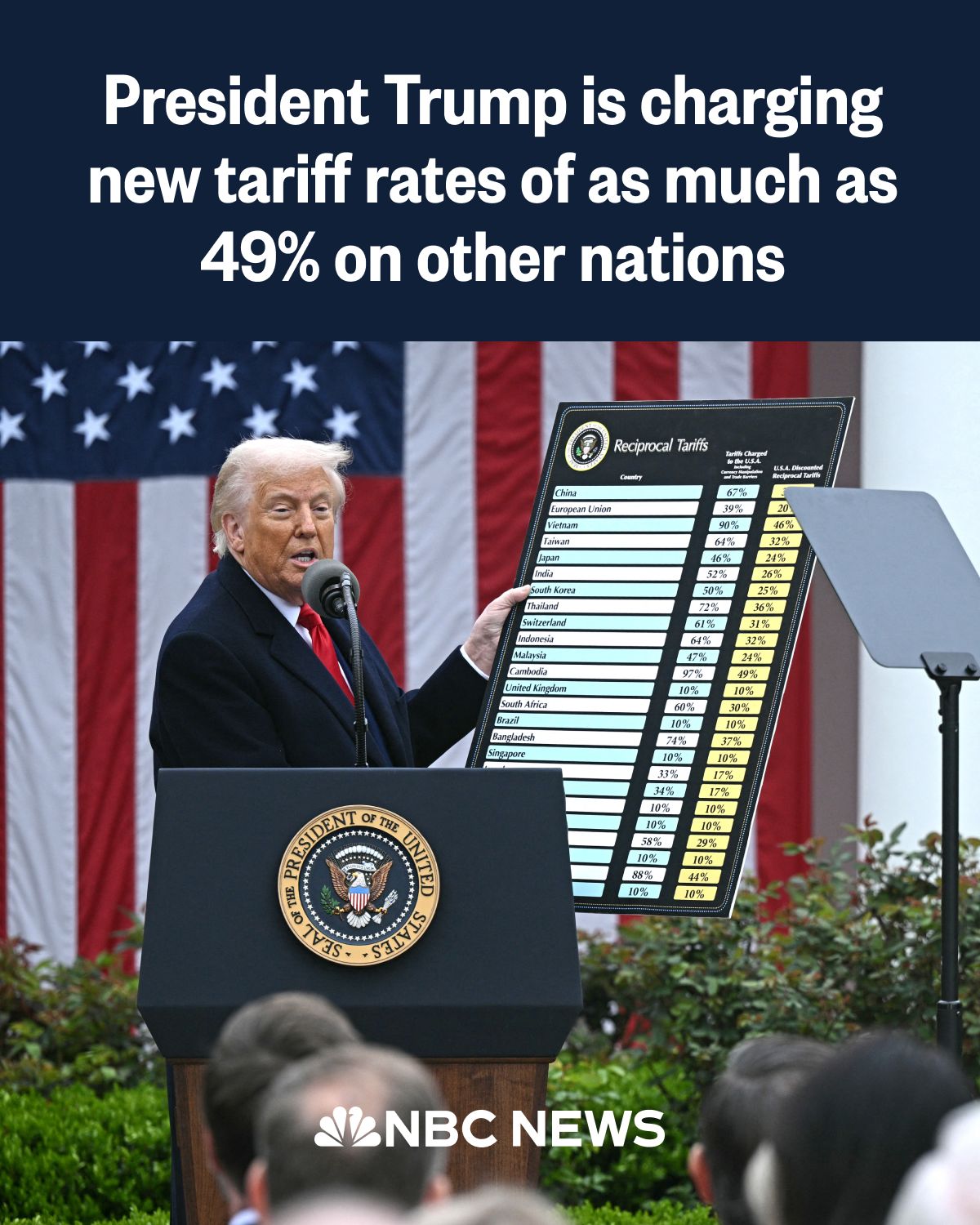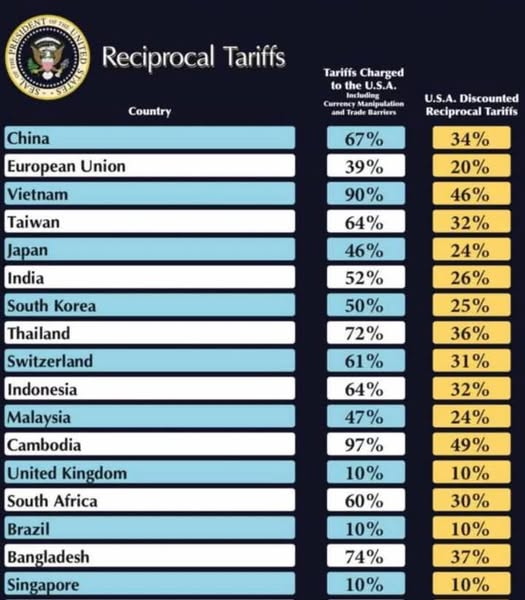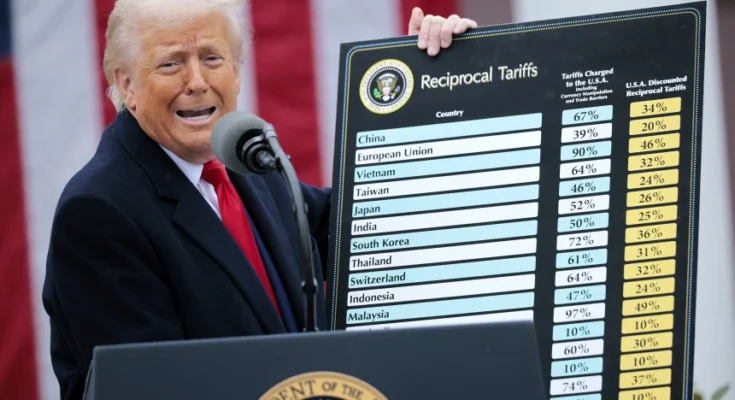By Rob Wile
President Donald Trump unveiled expansive tariffs on the United States’ largest trading partners Wednesday as he pledged to embark on the biggest reorganization of the global economy since World War II.

Importers seeking to bring goods into the United States from other countries will now face tariffs as high as 54% based on how the White House is calculating duties on U.S. exports, as well as “nonmonetary” trade barriers based on countries’ doing things like manipulating their currencies or serving as “pollution havens.”
The result was a list of tariffs that are set to impose major duties on billions — if not trillions — of dollars in trade. China, one of the United States’ largest trading partners, would be hit with a 54% tariff, the European Union with 20%, India with 26% and Japan with 24%, among many others.
It was not immediately clear how Trump or the White House had calculated those numbers; a handout listing the tariffs said it included “currency manipulation and trader barriers.”
U.S. stock markets sharply reversed earlier gains as Trump made his remarks. In after-hours trading, S&P 500 futures fell 1.5%.

Speaking from the White House Rose Garden, Trump slammed what he said were “much higher” import taxes on goods coming from the United States compared to what the United States has charged other countries for their exports.
America has been “looted, pillaged, raped and plundered,” Trump said in announcing the latest iteration of his tariff regime set to begin this week. He said American industry “will be reborn” and touted a new “golden age of America.”
The announcement is an effort to impose sweeping changes on decades-old trading arrangements under which the United States increasingly outsourced some labor-intensive manufacturing to foreign countries in return for cheaper goods — at the cost, critics have said, of America’s industrial base.
Trump argued that, instead, the United States has been getting “ripped off” by other nations while working-class wages have languished. In a call with reporters before the Rose Garden event, White House officials said the institutions that have governed world commerce “no longer fit the times.”
But far from providing an immediate jolt to the U.S. economy, the tariffs are expected to take a toll on many companies whose products rely on global supply chains and now could be forced to raise prices or endure thinner profit margins. The White House and its surrogates have tried to communicate a message of patience and endurance, warning of some pain ahead, but for a trade-off that will be worthwhile eventually.



